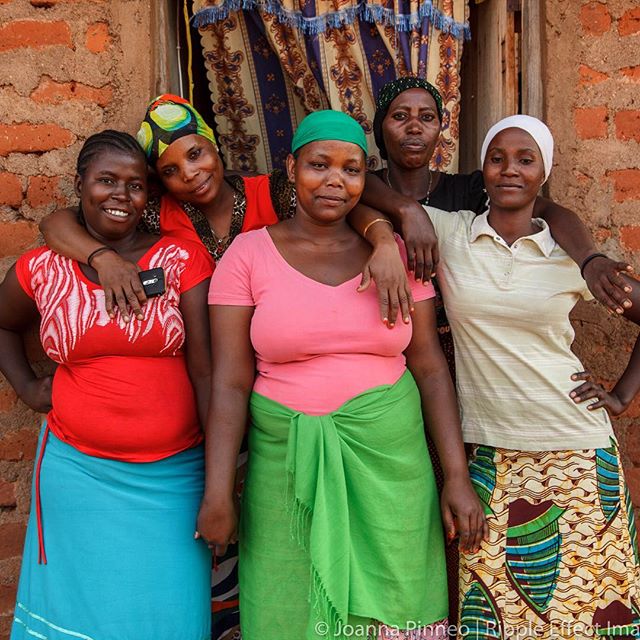Interview with Simbo Sojinrin
Solar Sister Nigeria Country Manager
Location: Nigeria
“f you look at what constitutes energy poverty and how it affects society, you see women are far more affected by it”.
Solar is one abundant source of energy that offers a bright future for African communities. Another is the abundant energy of empowered women. Both are being tapped by Solar Sister, which uses woman-to-woman direct sales to get solar lighting and efficient cook stoves to remote communities. The network, modelled on Avon Cosmetics, is successful and growing. Started in Uganda six years ago and expanded with country teams in Tanzania and Nigeria, Solar Sister has now enlisted over 2,500 entrepreneurs and aims for 5,000 entrepreneurs by 2020. And while the 90 per cent female organisation happily includes male staff and entrepreneurs, there is a reason for its focus on women.
Olasimbo Sojinrin, Solar Sister’s Nigeria Country Manager, says eradicating energy poverty is the goal. “We believe we can do that through women’s enterprise. If you look at what constitutes energy poverty and how it affects society, you see women are far more affected by it, so women as the workforce to power the solution is ideal”.
Because women are responsible for managing the home, doing the cooking, and providing fuel and lighting, Sojinrin says they understand how switching to clean energy can make a difference in their own lives and in their communities. “We have communities living off-grid that are using kerosene stoves, candles, and just basically burning anything for light. The same with cooking—fetching firewood and anything that burns, resulting in a very black, smoky kitchen”.

Inhaling smoke and particles causes lung disease, so efficient cookstoves are a long-term investment in health. But customers also see immediate benefits from Solar Sister products: reduced workload in gathering fuel, less laundry because women aren’t covered in smoke from the kitchen. Being able to charge a cell phone from a solar lamp, the ability to study or work in the evening without burning kerosene, and improved security from outdoor lighting are important quality of life improvements for the ‘last mile’ communities Solar Sister targets.
It’s the network of women entrepreneurs who get there. Staff associates are based around a region—for example, there are associates in 20 of Nigeria’s 36 states. They recruit women in remote communities, train them, supply them with products and support their work with mentorship and encouragement.
In her role as Nigeria Country Manager, Sojinrin guides, mentors, and supports the associates. “The core of my job is supporting the team and that gets me travelling a lot, going to the different states across the country. That’s what takes up most of my time.” She also works on relationship management with supply partners and other organizations.
Solar Sister does its market research, too. “For each community there is a checklist—we want to know how many people there are in the community, what kind of business they do, how many Solar Sister entrepreneurs can service that community, so we’ll be able know ‘OK, this population needs one entrepreneur’. Some communities are big enough to support two or three”.

Introducing sustainable technology is a challenge because it is new, says Sojinrin, so customers need to appreciate that their investment will actually save them the money they otherwise would have spent on fuel. When it comes to recruiting the entrepreneurs, Solar Sister looks for women who can become educators and ambassadors for new technology. The ability to inspire trust is important, and the organization does its part by developing durable products and backing them up with a one-year warranty.
Solar Sister provides a path to greater economic security for the entrepreneurs. Many are already engaged in their own small businesses, like running a market stall, when they’re recruited. They have to come up with the equivalent of about $8 to invest in their first products and get started. But they often move to selling Solar Sister products exclusively. “For the types of economic activity in the places we serve, the profit margins are very small”, says Sojinrin. The entrepreneurs earn 15 per cent on the products they sell, a much better return than with the other small business activities that are available. “You usually find an entrepreneur starts off selling small, basic lamps, which are usually the cheaper products. Then you find more people buying products that can charge a cell phone, products that can light up whole rooms at once, solar home systems, and her business grows as her customers move up the energy ladder”.
The 15 per cent adds up, and entrepreneurs use their earning to contribute to school fees, buy groceries and things for the home, and pay medical expenses. So benefits ripple out for their families and communities.
When new entrepreneurs join Solar Sister, they’re assigned to a sisterhood group of peers for meetings and trainings, where supportive relationships extend beyond economics. “Agency and empowerment are as important as training in finance management and business skills”, says Sojinrin. That’s the beauty of what she calls “a complete ecosystem of women’s access to sustainable energy and opportunity. Being a Solar Sister entrepreneur provides greater empowerment for a woman. You are working with cheerleaders who are helping you succeed. In this career, seeing women grow in their business and gain confidence is really one of my biggest rewards”.
—Valerie Schloredt, Writer and researcher




